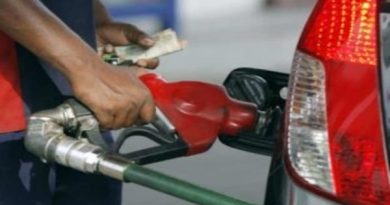Climate: US to support Nigeria in eliminating gas flare as UN urges developed countries to deliver on their pledges
As the world continues to face climate shocks, a new multi-agency report coordinated by the World Meteorological Organization (WMO), showed that greenhouse gas concentrations were rising to record highs.
According to the report, urgent action is needed to mitigate emissions and adapt to the changing climate.
United Nations Secretary-General, Antonio Guterres said There is nothing natural about the new scale of these disasters.
Senator John Kerry, President Biden’s Special Envoy on Climate Change says $ 12 billion has been put together by the President for an “Emergency program for the adaptation and resilience”, in order to help countries reduce the impacts of the climate change crisis.
He stated this while visiting the Minister of State for Petroleum Resources, Timipre Sylva, in Abuja, to discuss ways to reduce gas flaring, greenhouse emissions, and the use of clean energy.
Everyone on earth has benefited from humanity’s ability to enhance access to better, longer lives and sustainable development.
Climate change as a result of greenhouse emissions is due to the choices being made by humans on a daily basis.
These options range from powering up vehicles to lighting homes, and energy is derived for cooking cook and catering to other human needs.
The Nigerian Gas Flare Commercialisation Programme (NGFCP) and the National Gas Policy are two frameworks through which the government seeks to deepen and accelerate the growth and development of the gas sector, as well as reduce gas flaring, and imports, and drive domestic consumption of gas.
Gas flaring cost the global economy $20 billion in 2018, according to the World Bank.
In Nigeria, PWC estimates that the Nigerian economy lost N233 billion ($761.6 million) to gas flaring Which translates to 3.8% of the global total costs In 2018.
The environmental cost of gas flaring amounts to 28.8 billion (US$94 million) annually.
According to the National Environmental, Economic, and Development Study (NEEDS) for Climate Change in Nigeria, the percentage of gas flaring in Nigeria has reduced since 2002 and stood at 10% in 2018.
This he says is aimed at reducing the climate crisis and its attendant effects on the environment.




